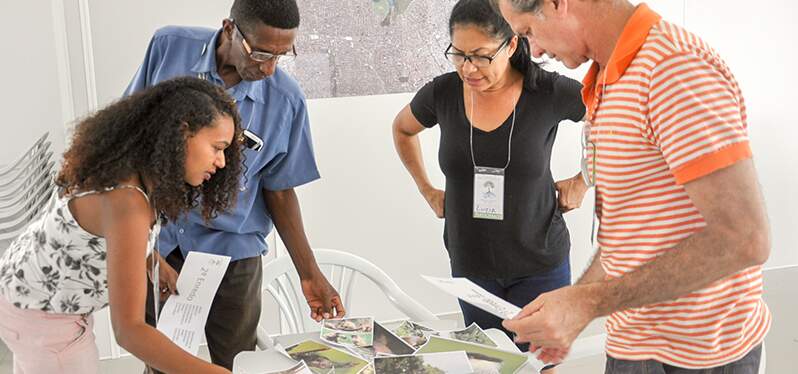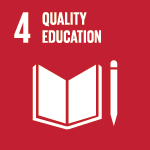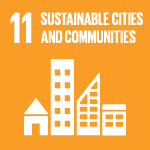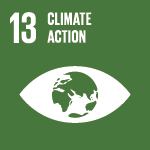Posted in: 12/02/2021
Environmental Education (EE) faces contemporary limits, difficulties, and challenges that can only be faced through access to information and the qualification of knowledge so that sensitized people and companies understand their role.
But getting society to understand what resources it has available to fight for rights, and to know tools that reduce socio-environmental problems, is not exactly an easy task. This requires a process of change in thinking, which has been built up over hundreds of years, and which involves education as a whole.
The human/nature relationship has long been viewed from an anthropocentric and fragmented perspective, seeing the environment as distinct and subordinate to human needs and nature only as a provider.
Although today the understanding that the human being is part of a system, and not a separate entity from nature, is widely disseminated a Cartesian vision still prevails – which can be represented by the term “natural resource” – that aims to meet, besides survival, the maintenance of the consumer society’s lifestyle.
In this way, companies and people remain, for the most part, as if the sources of raw materials were inexhaustible. And, although their speeches advocate the transformation of society through Environmental Education, they don’t realize that what they are doing is just placing on it the abstract responsibility of saving environmental problems. They lack the perception that it is education itself, and what is meant by it, that is at stake.
Environmental Education is first and foremost a matter of general education. Thereby, it cannot be presented only as a new teaching strategy without questioning the foundations, the epistemological and conceptual principles upon which education in today’s society is developed (RAMOS , 2001, p.216)[1].
It is a fact that the expression Environmental Education has permeated not only political ideology, but has also come to occupy a prominent place in the pedagogical context since the early 1970s, incorporating new terms and perspectives as it became institutionalized.
The link between environmental education and the achievement of certain values, skills and attitudes has been recognized since the Stockholm Conference in 1972. It evokes the need for an“enlightened” consciousness of the human being in his relationship with nature and the environment for its preservation and conservation.
EE emerged, then, as a “strategy” of society to face environmental problems understood, from this time on, as threats to the quality and life on the planet[2].
The idea that the history of the human being cannot be dissociated from nature and that his freedom must pass through the respect for the “rights” of nature, constitutes one of the strong points of the contestatory ideology in this first period. Therefore, the need for EE on a global scale becomes a universal recommendation.
The globalization of EE (environmental education) took a significant step forward with the 1977 Tbilisi Intergovernmental Conference in Georgia, when it became institutionalized.
The UNESCO document “Environmental Education: The Major Orientations of the Tbilisi Conference” has become a reference for bodies, individuals, and institutions responsible for EE at the regional, national and international levels.

Therefore, it constitutes a technical text with the purposes, objectives, guiding principles and strategies for the development of EA, with the main focus on the fact that such education could only happen, in the educational spaces par excellence, through an interdisciplinary approach.
Years later, in a context of extreme social inequality, growing poverty, and worsening environmental problems, a new term emerged: sustainable development.
The International Conference on Environment and Development, held in Rio de Janeiro in June 1992, had as its central objective to establish global and international agreements and strategies, based on the interests of all, the integrity of the environmental system, and world development. Thus, it brought new challenges for Environmental Education.
EE has taken on a central role in the construction of a “socially just and ecologically balanced” world, a condition seen as indispensable for human survival and for maintaining life on the planet.
In other words, Environmental Education should be able to form a qualified and critical thinking about socio-environmental issues, and be conducted by the Public Power, the entity responsible for promoting Environmental Education at all levels of education, but also outside of them.
However, even though it was a global consensus, whether from rich or poor countries, that the development pattern based on economic growth and environmental degradation could no longer be applied, sustainable development presented itself as an ambiguous term still under construction.
Remember that the late 20th and early 21st centuries were marked by a series of crises:
It is worth noting that, at the present time, we are still facing these same crises, some of which have even been potentialized by coronavirus pandemic. In the national scenario, setbacks in environmental policies threaten nature and aggravate the effects of global warming. Although companies are investing again in ESG practices (environmental, social, and governance), the reasons for doing so are primarily linked to financial return and/or risk.
In such a context, characterized by material and immaterial misery, there is a separation between power and politics, with the State losing its strength. This leads to the deterioration of public services and the loss of functions that used to be the state’s responsibility, which are now handed over to the private sector and become the responsibility of each individual person.
Social inequalities and uncertainty increase the focus on individualism, and happiness seems to survive in the contradiction between consumption and disposal.
The struggle of interests and conflicts of the various social actors – such as the state, NGOs, businesses, universities, and civil society – has shown that environmental education has often functioned only at the level of individual actions, pushing environmental concerns out of the public sphere and into the subjective sphere.
From this logic, which displaces Environmental Education to the personal sphere, falling into a simplistic view, the causes of environmental degradation end up being seen as the responsibility of isolated actions of each human being.
As it is known, only an Environmental Education conducted through participatory processes, which culminate in community involvement, can constitute a more effective way to conduct actions for sustainable development.
Sensitized people, in possession of knowledge about the environmental issues that affect them, can influence policies and generate action on a micro and macro scale.

But the transformation of the relations of people with nature for its conservation/preservation, as intended, presupposes understanding that the actions of human beings are determined by the material base of their production, which in turn historically generates the social, economic, political and institutional relations of a society.
All this makes it impossible to talk about Environmental Education, excluding or weakening the complexity of this material base that, built on the principle of inequality, also acts unequally on those who use natural resources.
It is urgent that concrete attitudes are taken, aiming not only to stop the rampant environmental degradation, but also to go after the damage and restore as much as possible what has been degraded in a large part of the planet. And this should be the same for all nations.
It is worth pointing out that if it is still possible to have a chance of survival in the long term – given the degree of degradation that persists in the face of constant postponements and setbacks in sustainability policies – such attitudes must be taken now.
Environmental Education is inserted in this context in which societies undergo deep and harsh transformations in the context of neoliberalism. In addition, there is the negligence of some governments and private companies in relation to the projections and warnings brought by scientists, combined with misinformation and Fake News.
And this is the great challenge posed to Environmental Education: the sensitization for objective transformation actions, in which the efforts are synchronous and joint, since they cannot be carried out in isolation.
A change in thinking goes directly through the broad and continuous implementation of EA, and, moreover, effectively reaches the practical and not only the theoretical part. It takes a collective effort, from companies, governments, organizations, and individuals. Of all the nations on the planet. It is necessary to do it and encourage the other person to do it too, understanding that we are part of a common future.
[1] RAMOS, Elisabeth Christmann Environmental education: origin and perspectives. Educate in Magazines (Educar em Revista), p. 201-218, 2001.
[2] UNESCO. Tbilisi Conference. 1977. Recommendation 1. In: ESTADO DE SÃO PAULO. Secretary of the Environment. Environmental education and development: official documents. São Paulo, 1994. p. 31
Synergia has a Nucleus of Educators dedicated especially to the themes of Social and Environmental Education, always attentive to the development of new methods and approaches that bring knowledge and effective learning to our territories of operation. The Center’s staff prepared this article seeking to clarify for our readers the context and relevance of Environmental Education in contemporary society.
The article “Environmental Education and contemporary challenges” is the first of a series of three texts produced by the Center.
Check out the second article in the series: Licensing, non-formal Environmental Education and the role of companies
The last article of the series on Social and Environmental Education: Pedagogical practices of Environmental Education and the methodological political context



Sign up and receive our news.